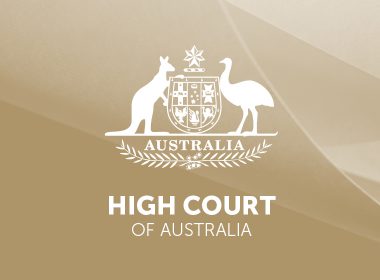Key decisions
- Federal Commissioner of Taxation v Martin Thomas; Federal Commissioner of Taxation v Martin Andrew Pty Ltd; Federal Commissioner of Taxation v Martin Nominees Pty Ltd; Federal Commissioner of Taxation v Martin Thomas [2018] HCA 31
- R v Falzon [2018] HCA 29
- Hossain v Minister for Immigration and Border Protection [2018] HCA 34
- Shrestha v Minister for Immigration and Border Protection; Ghimire v Minister for Immigration and Border Protection; Acharya v Minister for Immigration and Border Protection [2018] HCA 35
- Nobarani v Mariconte [2018] HCA 36
Taxation law
Franked distributions – franking credits – Supreme Court directions to Trustee
Federal Commissioner of Taxation v Martin Thomas; Federal Commissioner of Taxation v Martin Andrew Pty Ltd; Federal Commissioner of Taxation v Martin Nominees Pty Ltd; Federal Commissioner of Taxation v Martin Thomas [2018] HCA 31 (8 August 2018) concerned the extent to which directions given by the Supreme Court of Queensland could determine conclusively the application of Div 207 of Part 3-6 of the Income Tax Assessment Act 1997 (Cth).
The Trustee of the Thomas Investment Trust received franked distributions within the meaning of Div 207. The Trustee passed two resolutions, which sought to distribute, or stream, the franking credits between beneficiaries of the Trust separately from, and in different proportions to, the income comprising the franked distributions. The assumption underpinning the resolutions was that franking credits and income from franked distributions could be distributed in this way – the ‘Bifurcation Assumption’. Income tax returns were prepared and lodged on the basis that the Bifurcation Assumption was legally valid. The Trustee later sought and received from the Supreme Court of Queensland a direction under Trusts Act 1973 (Qld) that the resolutions could give, and had given, effect to the Bifurcation Assumption.


